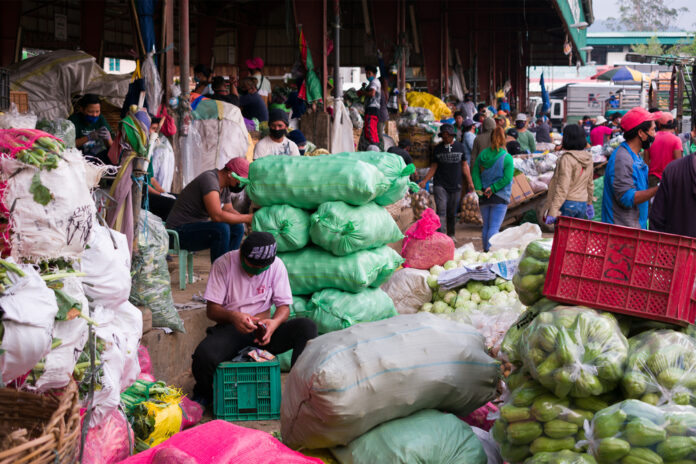Food security and livelihood advocacy group Tugon Kabuhayan on Tuesday offered to help the government stop the chronic smuggling of food products that has depressed local production and kept food prices high.
Jon Santos, of the Association of Fresh Fish Traders of the Philippines, said private sector stakeholders that face the problem every day must be involved in the enforcement of anti-smuggling laws.
“Alam natin na pag mainit, nawawala ang smuggling. Pag lumipas, bumabalik. Dapat sa sistema, kasama tayo bilang stakeholders na merong involvement sa enforcement ng bataspara may consistency. Dahil pag nalingat ang pusa, andyan na naman [ang smugglers]. Araw-araw kinakaharap natin ang problemang ito…involve the stakeholders,” Santos said.
In a briefing, Tugon Kabuhayan convenor and lawyer AsisPerez disclosed that the Department of Agriculture is set to file several cases against suspected smugglers this week.
“The problem now is that the group that goes after smuggling is ad hoc, without personnel. We support the institutionalization of Assistant Secretary James Layug’s inspectorate and enforcement group in the DA,” said the former national director of the Bureau of Fisheries and Aquatic Resources.
Perez said the continued smuggling of onions, rice, corn, sugar, carrots, fish, and pork has an immense impact not only on farmers and fisherfolk but on Philippine food security. “The persistent entry of these undocumented products in our country is also threatening our economy in terms of revenue loss and untaxable commodities,” he said.
As of late December 2022, the Bureau of Customs (BOC) estimated having seized over P1.2 billion worth of apprehended and detected agricultural products smuggled into the country.
Former Agriculture Secretary Leonardo Montemayor said chronic smuggling of food products also threatens Filipino consumers, noting that animal and plant diseases that have plagued the country such as African swine fever and cocolisapare most likely due to unregulated importation.
“Aside from the impact on the revenue and production of local farmers and fisherfolk, human health and plant and animal safety are also affected by illegal imports. Ano ang dala nilang sakit? The ASF and cocolisap are most likely from smuggled goods,” Montemayor said.
In the case of rice smuggling, Montemayor estimated that between 2019, when the Rice tariffication Law was passed, and 2022, the government lost an additional tariff of P8 billion due to smuggling.
“If the reference price in the international market per metric ton is $500 and the import declaration is $400, that alone should serve as a red flag, and the bond should immediately kick in. Unless and until the exporter can explain satisfactorily, don’t release the importation. Dahil once nakalusot sa port area, hirap na habulin,” Montemayor said.
“Talamak ang problema ng smuggling, lalo na sa kaso ng sibuyas…With special attention to digitalization and electronic technology, we can help deter and intercept smuggling. On the prosecution side, all those intercepted, sampahan agad ng kaso,” he added.
Lawyer Elias Jose Inciong, of the United Broiler Raisers Association (UBRA), said the Agriculture and Fisheries Modernization Act of 1997, especially its provisions on data and quarantine, must be enforced. He said a system for enforcing the law must be put in place.
“The President recently stressed the need to stop smuggling. I maintain that there is no system in place to address the matter. The national information network, together with the inspection and quarantine system, can be used to interdict and combat smuggling and anti-fair trade. Hanggang ngayon maraming pagtatalo dahil sa maling datos. Mahirap tukuyin ang problemakung walang data. We need an information data system and inspection areas to combat smuggling,” Inciong said.
“There must be transparency of information. The initial step is the most important. There should be a monthly comparison of the data for importation. The recorded exports of the countries of origin must be compared with the records from the Bureau of Customs, and look at the discrepancy between the volume recorded and the volume actually arriving inside the Philippines. So far there is no sense of urgency to address this problem. It will fail because we don’t have a system in place,” added Inciong.
Moreover, Inciong said, the National Economic Development Authority (NEDA) must shed its bias for importation. “Agricultural smuggling weakens our food security and national security. Our food sovereignty is in danger. We are not progressing because of NEDA’s bias towards importation. We have to remove the incentive to smuggle by making our sector competitive,” he said.







